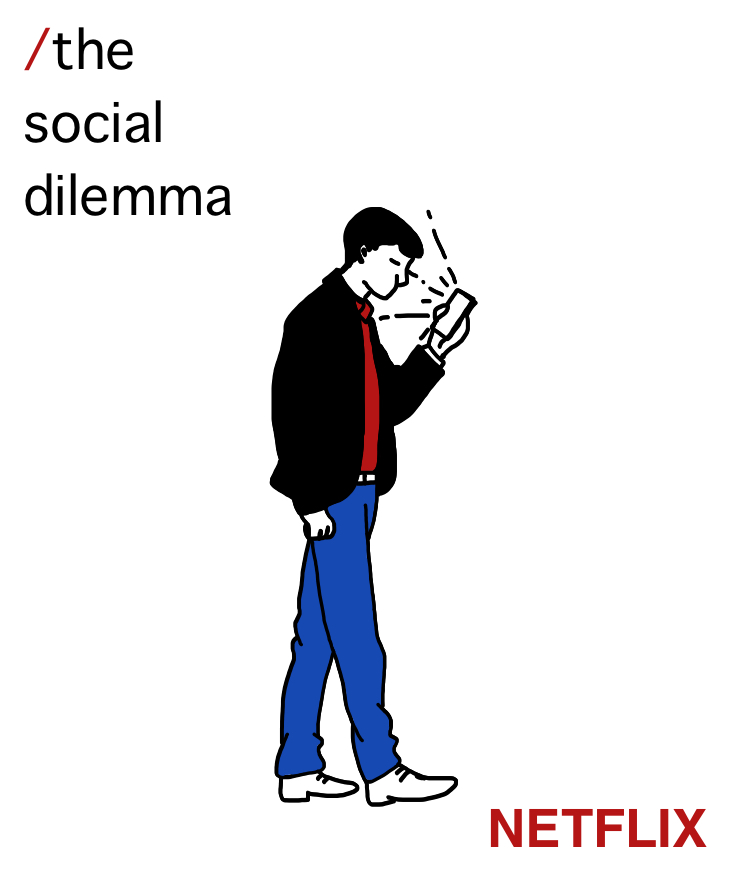“If you’re not paying for the product, then you are the product”
Reviewing the mind-opening documentary, The Social Dilemma.
August 8, 2021
The Social Dilemma, a documentary on Netflix, is all about the dark side of technology. More specifically, the documentary focuses on the negatives of social media and how the apps work to get you addicted to them.
The purpose of the documentary is to open people’s eyes to the damage that social media is doing to their everyday lives. Personally, it is one of my favorite documentaries because it is not only informative but also very engaging. It has a fantastic panel of interviewees who provide great insight into the topic at hand.
The most memorable quote from the documentary, in my opinion, is when Google’s former design ethicist and Co-Founder of the Center for Humane Technology, Tristan Harris, states, “if you’re not paying for the product, then you are the product.”
You may be wondering what this means. Well, to give you some context, this is something he says when discussing how social media networks make money. The answer is: through advertisers. They sell you, based on the information that they’ve gathered about you, to the highest bidding advertiser. That advertiser then works to slowly but surely change you through their advertisements in order to fit you into their preferred narrative.
“It’s the gradual, slight, imperceptible change in your own behavior and perception that is the product,” elaborates computer scientist and author Jaron Lanier.
They also work to get you addicted to the app. The documentary says they do this through notifications, likes, comments, and, most importantly, through your yearning for validation. They get you addicted to the feeling of being validated by your peers by giving you that little surge of dopamine each time you get a notification, and that is enough to leave you wanting more. In psychology, this is known as a variable interval schedule of reinforcement, which is highly addictive.
“There are only two industries that call their customers ‘users,” explains Edward Tufte. “Illegal drugs and software.”
Tufte is an American statistician and professor emeritus of political science, statistics, and computer science at Yale University. He knows what he’s talking about.
Near the end of the documentary, the interviewees talk about how this system needs to change. Social media networks should always consider what is best for people, even if it isn’t necessarily what is best for their company.
“The law runs way behind on these things, but what I know is the current situation exists not for the protection of the users, but for the protection of the rights and privileges of these gigantic, incredibly wealthy companies,” says Facebook early investor, Roger McNamee. “Are we always gonna defer to the richest, most powerful people? Or are we ever gonna say, ‘you know, there are times when there is a national interest. There are times when the interests of people, of users, is actually more important than the profits of somebody who’s already a billionaire’?”
If these networks won’t do what’s best for the people on their own, sometimes we need to take these matters into our own hands.
“We can demand that these products be designed humanely,” says Harris. “We can demand to not be treated as an extra table resource.”
All in all, it is a wonderful documentary. At one hour and thirty-fourRT minutes, it is not too time-consuming either. I definitely suggest that you add this to your list on Netflix right now.
